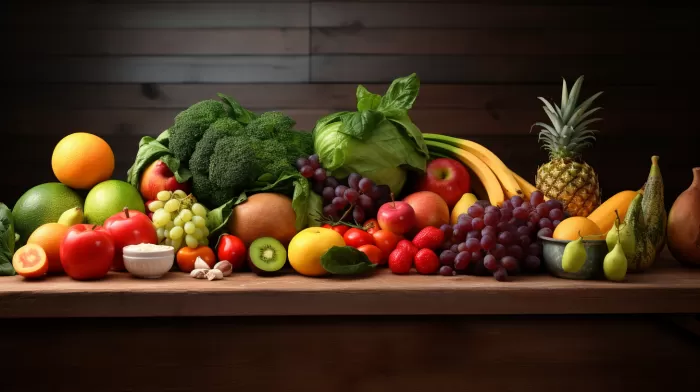Cancer is a complex disease and the role of diet in cancer prevention has long been a topic of heated scientific debate. With countless articles and studies claiming that specific foods can either increase or decrease our risk of cancer, it can be confusing and anxiety-inducing to decide what to include in our diets. However, researchers from Stanford University advise against getting carried away with these claims, suggesting that many of them are based on unreliable evidence.
A research team led by John Ioannidis, an expert in the field of medicine and health policy, recently conducted an extensive review of scientific literature in order to assess the reliability of claims surrounding food and cancer risk. The researchers analyzed a list of 50 foods and the research that examined their relationship to cancer during the past four decades. The findings revealed a wide range of claims with dubious backgrounds.
Ioannidis told Reuters, “We have seen a very large number of studies, just too many studies, suggesting that they had identified associations with specific food ingredients with cancer risk.” He highlighted that these claims can lead people to make significant life changes, only for the results to be refuted shortly thereafter. As such, it is essential for readers to be critical of studies that claim a particular food has a significant impact on cancer risk.
Instead of focusing on individual foods, the researchers advocate for adopting a broader perspective when considering dietary changes for cancer prevention. A diet rich in fruits and vegetables, along with regular exercise and avoiding tobacco products, has been proven to promote overall health and longevity. Maintaining a healthy lifestyle is the best way to decrease the risk of cancer and other chronic diseases.
Rather than getting carried away with the latest studies or trending superfoods, individuals should follow a balanced diet with a wide variety of nutrients. Incorporating whole grains, lean proteins, healthy fats, and an abundance of fruits and vegetables will help to preserve overall health and support the body in its fight against cancer.
Additionally, it is essential to prepare and store food safely. Cooking meat at high temperatures, such as grilling or frying, can produce harmful chemicals that have been linked to cancer. Opt for lower-temperature cooking methods like baking, stewing, or steaming to minimize cancer risk. Also, preserving food through pickling, salting or smoking can produce carcinogenic substances, so consume these foods in moderation.
Importantly, portion control and maintaining a healthy weight play a vital role in cancer prevention. Obesity has been identified as a significant risk factor for various types of cancer, including breast, colon, and kidney cancer. Staying within a healthy weight range can help to lower this risk.
Physical activity is another essential component in reducing cancer risk. Aim for at least 150 minutes of moderate-intensity exercise or 75 minutes of vigorous-intensity exercise per week. Exercise helps to maintain a healthy weight, reduces inflammation, and can strengthen the immune system, all of which play a role in cancer prevention.
Adequate sleep and stress management are also crucial components in a cancer-preventative lifestyle. Chronic stress and sleep deprivation have both been linked to a weakened immune system, making it harder for the body to fight off diseases, including cancer.
In summary, the key to reducing the risk of cancer lies in adopting a well-rounded, healthy lifestyle that prioritizes a balanced diet, regular exercise, weight management, stress reduction, and adequate sleep. Although isolated studies may continue to claim significant results based on specific foods, it is important to remember that there is seldom a single “magic bullet” for cancer prevention. Instead, focus on incorporating a variety of healthy habits into your daily life to build a strong foundation for long-term health and well-being.



